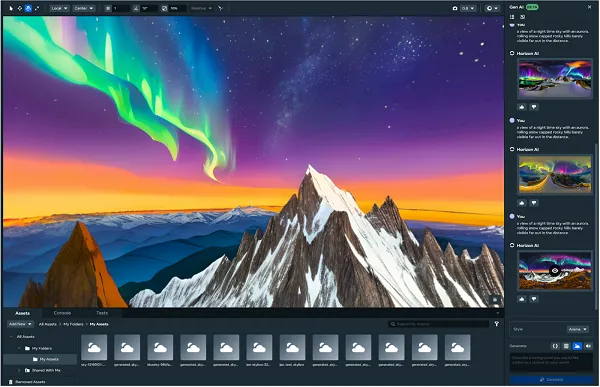Meta Revolutionizes VR Creation with AI-Powered AssetGen 2.0
Meta is simplifying VR world creation with its latest AI tool, AssetGen 2.0. This innovative system allows users to generate complex 3D objects within Horizon Worlds using text and image prompts. This democratizes VR development, empowering creators to build immersive experiences with ease.

Building Immersive VR Experiences with AI
Building on its predecessor, AssetGen 1.0, AssetGen 2.0 represents a significant leap forward in 3D generative AI. It leverages a single-stage 3D diffusion model to create high-quality 3D meshes with improved detail and fidelity. A complementary tool, TextureGen, ensures these assets are production-ready with high-quality textures.
“Building on its predecessor, AssetGen 1.0, our latest innovation represents a significant leap forward in 3D generative AI research, leveraging a single-stage 3D diffusion model to deliver 3D meshes with dramatically improved detail and fidelity, while our complementary TextureGen model ensures that these assets are not only visually stunning but also production-ready with high-quality textures.”
Meta utilizes 3D diffusion for geometry estimation and trains AssetGen 2.0 on a vast library of 3D assets. New methods improve view consistency, texture in-painting, and texture resolution. Meta is currently using AssetGen 2.0 internally and plans to roll it out to Horizon Worlds creators later this year.
Democratizing VR Creation
This technology democratizes VR creation, enabling anyone to build immersive VR experiences simply by describing them. This builds upon Meta's previous VR creation tools, like the BuilderBot showcased in 2022. Last month, Meta also demonstrated the creation of entire VR worlds through text and voice prompts.

With AssetGen 2.0, users can create their own VR environments in hours without coding knowledge or deep VR system understanding. This is a key step in Meta's VR evolution and its broader metaverse vision.
Challenges and Future of VR
While the potential of the metaverse is vast, challenges remain. Widespread VR adoption is hindered by cost and the limited availability of compelling VR experiences. Meta is addressing the cost barrier by subsidizing Quest headset sales. Another hurdle is motion sickness, which affects some VR users. Meta continues to work on solutions to overcome these challenges and unlock the full potential of VR and the metaverse.









